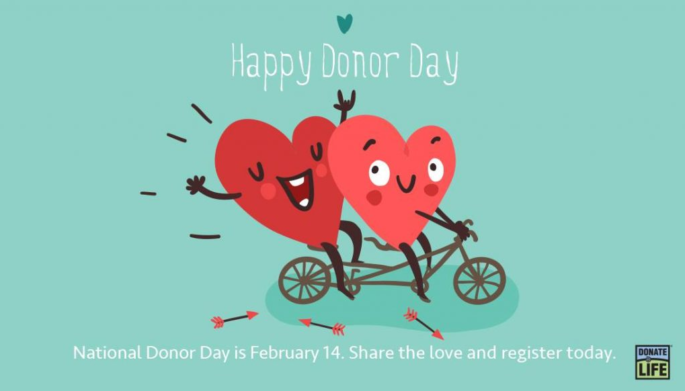Live Well Allegheny: February 2023 E-Update
A Letter From Our Deputy Director
Hello Live Well Partners!
February is American Heart Month. Heart disease is the leading cause of death for both men and women in the United States.
To help prevent heart disease, you can:
- Eat a healthy balanced diet
- Increase regular physical activity to at least 2.5 hours per week
- Avoid tobacco and alcohol products
- Have your blood pressure and blood sugar checked regularly
The Allegheny County Health Department recently released its community health improvement plan, work that we did alongside community partners and residents. The Plan for a Healthy Allegheny 2023-2027 aims to improve the overall health of everyone living, learning, and working in the county. Please be sure to check it out later in the e-update.
Warm regards.
Dannai Wilson
Deputy Director
Bureau of Community and Family Health
Allegheny County Health Department
Live Well Allegheny Story

The Market at the Greater Pittsburgh Community Food Bank
In late 2022, the Greater Pittsburgh Community Food Bank opened an on-site pantry where eligible residents can shop for grocery items at no cost.
The Market is at the Food Bank’s headquarters in Duquesne at 1 North Linden Street.
Available items include canned goods, produce, freezer items, eggs, and meat. Residents can order ahead and shop online at the OrderAhead site.
Want to know who is eligible? Visit the Greater Pittsburgh Community Food Bank’s website.
The Market is open Monday through Friday from 9 a.m.-noon and 1-4 p.m., as well as Saturday from 9 a.m.-noon.
February Health Observances
National Children’s Dental Health Month
Tooth decay is the number one chronic infectious disease affecting children in the Unites States. It is on the rise, but it’s largely preventable by scheduling regular dental visits starting at the age of one.
The Allegheny County Health Department’s Pediatric Dental Program provides free dental treatments to children from low-income households who cannot afford private dental care. For more information about the dental program, visit its website here.
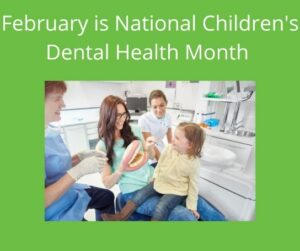
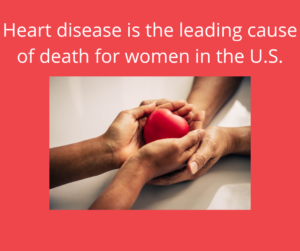
February is American Heart Month
One in every three (3) deaths in the United States is related to cardiovascular disease. This American Heart Month explore sharable resources from the Centers for Disease Control and Prevention (CDC) to help you and your peers make heart-healthy choices and reduce the risk of cardiovascular disease.
Visit cdc.gov/heartmonth for more information.
How does heart disease affect women?
Despite increases in awareness over the past decades, just over half (56 percent) of women recognize that heart disease is their number one killer.
Facts about women and heart disease:
- Heart disease is the leading cause of death for women in the United States, killing 314,186 women in 2020 – or about 1 in every 5 female deaths.
- Heart disease is the leading cause of death for Black and white women in the United States. Among American Indian and Alaska Native women, heart disease and cancer cause roughly the same number of deaths each year. For Hispanic and Asian or Pacific Islander women, heart disease is second only to cancer as a cause of death.
- About 1 in 16 women aged 20 and older (6.2 percent) have coronary heart disease, the most common type of heart disease.
- Approximately 1 in 16 white women (6.1%), Black women (6.5 percent) and Hispanic women (6 percent)
- Roughly 1 in 30 Asian women (3.2 percent)
National Donor Day
Celebrated every year on February 14, National Donor Day is dedicated to spreading awareness and education about organ, eye, and tissue donation.
For more information about organ donation visit the Donate Life page here.

Live Well, Be Well
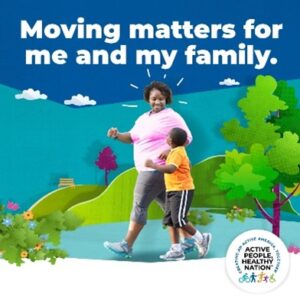
Enjoying a brisk walk, going for a bike ride, or taking a dance break are a few ways to be physically active.
Visit Moving Matters to learn more ways to get active.
Health Department Updates

2023-2027 Plan for a Healthy Allegheny Released
The Plan for a Healthy Allegheny is a roadmap for improved health focuses on three priority areas: physical health, behavioral health, and environmental health.
To improve the physical health of residents, the department and its partners aim to promote healthy lifestyles and reduce the risk of chronic disease. The plan also includes a number of goals to that end, including ensuring that residents have a place to obtain medical and dental care and that there is a focus on decreasing the disparities in life expectancy and chronic disease.
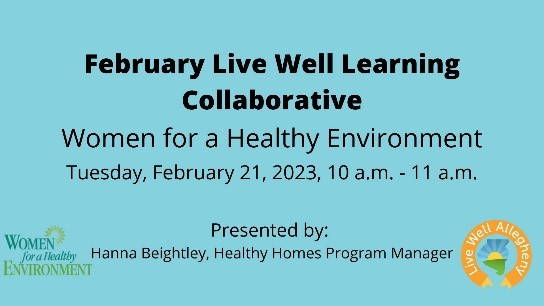
2023 Live Well Speaker Series
February Event: Women for a Healthy Environment
Join us for the February Live Well Allegheny Learning Collaborative Virtual Speaker Series on Tuesday, February 21, from 10-11 a.m. Women for a Healthy Environment will be presenting on the Healthy Homes Program.
Register for the collaborative here.
If you have any questions for the speaker, send them to [email protected].
Live Well Partner Resources
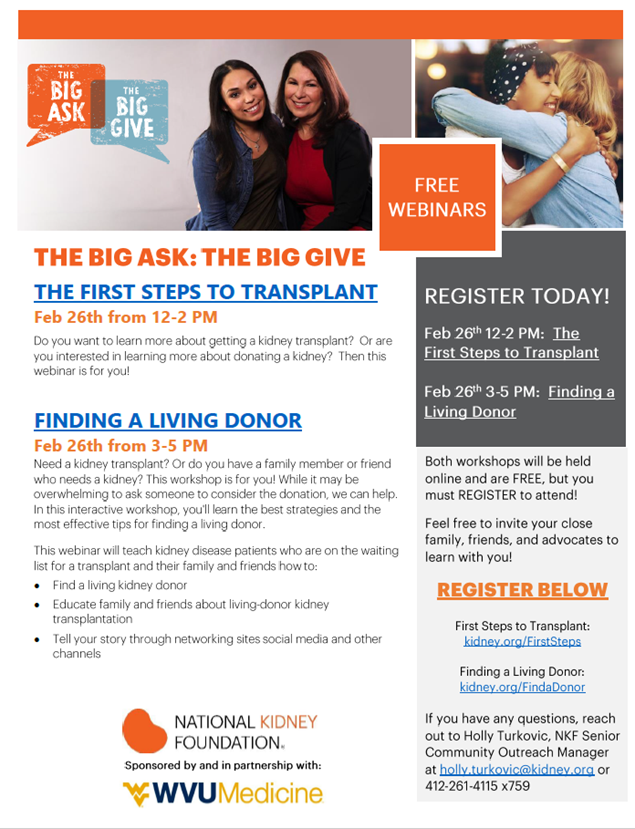
Chronic Disease Spotlight
According to the CDC, six in 10 adults in the U.S. have a chronic disease and four in 10 adults have two or more chronic diseases. Each month this section will highlight a common chronic disease and provide educational resources.
Alzheimer’s Disease
Alzheimer’s disease is the most common type of dementia. It is a progressive disease that commonly manifests with mild memory loss and can progress to the loss of one’s ability to carry on a conversation and respond to their environment.
Alzheimer’s Disease (and dementia) in Allegheny County
In Allegheny County, 7 percent of Medicare beneficiaries were treated for Alzheimer’s disease or dementia, based on 2021 data. Based on race/ethnicity data, the Black community has a higher incidence compared to white, Hispanic, or Asian communities at 8 percent.
Risk Factors for Alzheimer’s/Dementia
Factors that can increase someone’s risk of Alzheimer’s disease include:
- Age
- Family history
- Genetics
- Other risks
- Head injury
- Heart-head connection (or brain health)
Live Well Partner Resource: Alzheimer’s Association
The Alzheimer’s Association of Greater Pennsylvania provides support, education, training, and other resources to increase knowledge and to support those impacted by Alzheimer’s disease and other dementias. They offer both in-person and online education, support groups, and additional resources like the Alzheimer’s Association 24/7 helpline (800-272-3900).
For more information visit their website.

